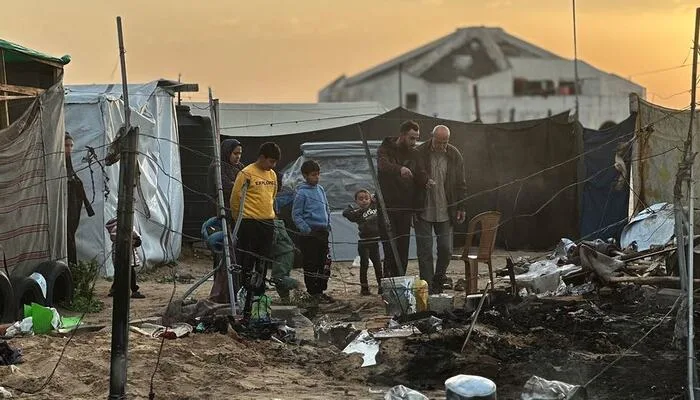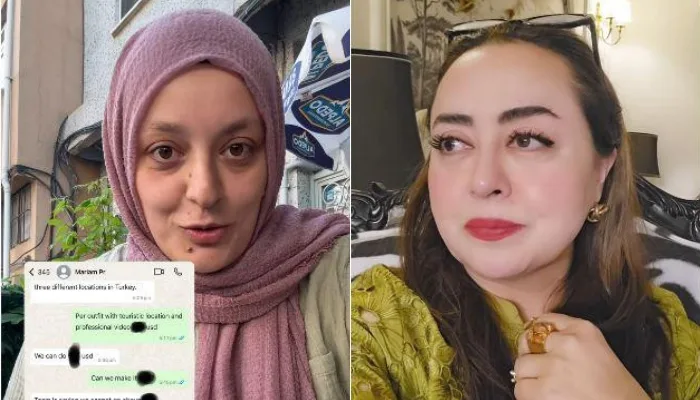
The tragic case involving Mustafa Amir and Armaghan highlights profound societal and familial issues. Individuals like Mustafa, who turned to drug dealing, and Armaghan, who became entangled in criminal activities, are often products of their environments. While external influences such as peer pressure and socio-economic challenges play significant roles, the foundation of an individual’s moral compass and decision-making often begins at home. This blog delves into the familial backgrounds of Mustafa and Armaghan, examining how parenting and broken families can shape young individuals’ trajectories toward destructive paths.
Familial Backgrounds of Mustafa and Armaghan
Mustafa Amir
Mustafa was a 23-year-old Bachelor of Business Administration (BBA) student. His mother, Wajeeha Amir, has been vocal about the circumstances surrounding his death. She has accused law enforcement officials of shielding her son’s alleged killer, Armaghan, instead of taking appropriate action.
Contrary to some reports, Wajeeha asserted that her son and Armaghan were not particularly close but were acquaintances within a larger social circle. She also revealed that Armaghan had been involved in a dispute with a woman over alleged misconduct, leading Mustafa to distance himself from him in recent days.
Armaghan
Armaghan’s father, Kamran Qureshi, has publicly stated that his son is a drug addict but denies allegations of his involvement in drug dealing or the murder of Mustafa. Kamran emphasized that all allegations against his son are baseless and expressed distrust in the current system, seeking justice through the courts.
Reports indicate that Armaghan had a strained relationship with his parents. Influenced by his lavish lifestyle, his acquaintance Shiraz admitted to attending several parties with him and noted the tension between Armaghan and his parents.
Read: Sahir Hassan Denies Involvement in Mustafa Amir Murder Case
The Impact of Broken Families on Crime and Violence
Children from fractured homes often grapple with emotional instability. Without adequate parental support, they may seek validation from detrimental influences such as gangs or drug networks.
Young individuals require strong role models to learn ethical behavior, responsibility, and self-discipline. Growing up in an environment where crime, violence, or neglect is normalized can lead them to perceive such lifestyles as viable options.
Exposure to domestic violence, substance abuse, or neglect during formative years can profoundly impact a child’s psyche, potentially leading them toward criminal activities as coping mechanisms.
The Role of Parenting in Preventing Criminal Behavior
1. Active Parental Involvement
Parents should engage actively in their children’s lives, understanding their social circles, academic performance, and emotional health. Open communication can deter children from seeking attention or validation in harmful places.
2. Balanced Discipline
While overly strict or neglectful parenting can push children toward rebellion, permissive parenting may result in a lack of discipline. Enforcing rules with understanding and fairness ensures children feel supported yet accountable.
3. Teaching Conflict Resolution
Many crimes stem from uncontrolled anger and inadequate problem-solving skills. Educating children on handling conflicts non-violently can guide them toward healthier decision-making.
4. Providing Stability
A stable home environment reduces the likelihood of children seeking solace in destructive behaviors. Consistent routines and a safe emotional atmosphere can deter involvement in criminal activities.
5. Encouraging Positive Engagements
Promoting education, hobbies, and skill development can offer children constructive outlets, steering them away from illicit activities.
Community Support and Systemic Interventions
1. Educational and Social Programs
Schools should offer mentorship, counseling, and community engagement initiatives to assist children from troubled backgrounds. Intervention programs can identify at-risk youth and provide alternatives to criminal pursuits.
2. Mental Health Services
Access to mental health services and parental counseling can aid families in navigating instability, helping children process trauma and develop healthier coping mechanisms.
3. Strengthening Support Systems
Investing in social programs that support single-parent households, alleviate poverty, and provide mentorship for at-risk youth can address root causes of criminal behavior. Legal systems should prioritize rehabilitation over mere punishment for troubled youth.
Breaking the Cycle
The unfortunate trajectories of individuals like Mustafa and Armaghan underscore the critical role of family dynamics in shaping a child’s future. While external systems can intervene post-incident, true prevention begins at home. By fostering supportive family environments, encouraging open dialogue, and providing resources for struggling households, society can proactively guide young individuals toward positive futures, breaking the cycle of crime before it starts.
Follow us on Google News, Instagram, YouTube, Facebook,Whats App, and TikTok for latest updates
















